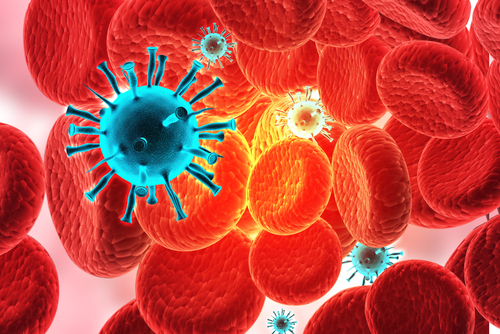Therapies called STING agonists help overcome the resistance that lymphoma patients develop to monoclonal antibodies such as Rituxan (rituximab), a study reports.
The research, “STING Activation Reverses Lymphoma-Mediated Resistance to Antibody Immunotherapy,” was published in the journal Cancer Research.
Our bodies fight tumors by harnessing the power of our immune system. Unfortunately, tumors are able to suppress the immune system. One way they do this is by turning immune cells called macrophages from an activated to a de-activated state. Shutting off the macrophages promotes tumor growth and metastasis, or cancer spreading to other areas of the body.
Monoclonal antibodies have become an important lymphoma therapy. Borrowing a page from our bodies’ production of antibodies to ward off invaders, pharmaceutical companies create monoclonal antibodies to go after cancer cells. These include Rituxan, which targets the CD20 antigen on the surface of lymphoma cells.
Rituxan, which has been shown to improve lymphoma patients’ survival, works by stimulating macrophages to gobble up tumor cells. Because tumor cells are able to manipulate macrophages, patients often become resistant to Rituxan, however.
Researchers at the University of Southampton in England sought ways to overcome this resistance. They decided to see whether STING agonists, and another class of agonist called TLRs, could help Rituxan restore macrophages’ ability to fight cancer. Studies have shown that the two kinds of agonists stimulate the immune system in ways that strengthen other drugs’ cancer-fighting ability.
The team discovered in laboratory experiments that both kinds of agonists bolstered the immune system’s response against tumor cells by reprogramming macrophages so they would help Rituxan do its job.
An experiment in mouse models of lymphoma showed that only STING agonists could reverse macrophage suppression, however. In essence, the reversal meant that the agonists were able to help the mice overcome resistance to Rituxin.
“We’ve shown that STING agonists can help to rev up immune cells and reverse attempts by the tumor cells to suppress them,” Dr. Stephen Beers, an associate professor at the university, said in a press release.
“There are promising early signs that this approach could be used to improve treatment for people with lymphoma. The next stage will be to modify STING agonists in the laboratory to make them as effective as possible at stimulating the immune system in lymphoma patients.”
“Antibody treatments to harness the immune system have been one of the great success stories of modern cancer therapy, but we also know that cancers find many ways to escape from the immune system,” said Professor Peter Johnson, Cancer Research UK’s chief clinician. “This exciting research suggests that using drugs to reprogram the cells around a cancer may make antibody treatments much more effective in the future, and we should be able to start testing this in the clinic very soon.”


